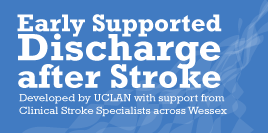Relevance for stroke survivors
- We know that fundamental changes take place in the identity of stroke survivors (Ellis Hill & Horn 2000)
- It is reported that stroke survivors display sensitivity to having acquired a damaged sense of self or identity (Guise et al. 2010)
- The loss of pre-stroke identity (leisure activities, driving, work) negatively affects the stroke survivor’s quality of life (Clarke & Black 2005)
- Maintaining group memberships post-stroke facilitates the continuity of social identity and well-being (Haslam et al. 2008)
- Peer supports are important in maintaining salient aspects of a stroke survivor’s identity (Clarke and Black 2005)
- It is often a struggle for stroke survivors to maintain pre-stroke group relations due to disability (Kvigne et al. 2004)
- Maintaining pre-stroke activities and drawing on social support to do this helps maintain important aspects of identity (Clarke and Black 2005)
- High levels of social support are associated with a rapid and broader recovery of functional status following stroke (Glass et al. 1993)
- Social support from stroke clubs helps members establish identity and promote personal development (Legg et al. 2007)
Relevance for Healthcare Professionals
- Patient’s identity goals are influenced by significant others including healthcare professionals (Charmaz 1995)
- The way in which stroke survivors and healthcare professionals view their own identity and each other’s influences the way they interact with each other (Mold et al. 2003)



